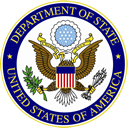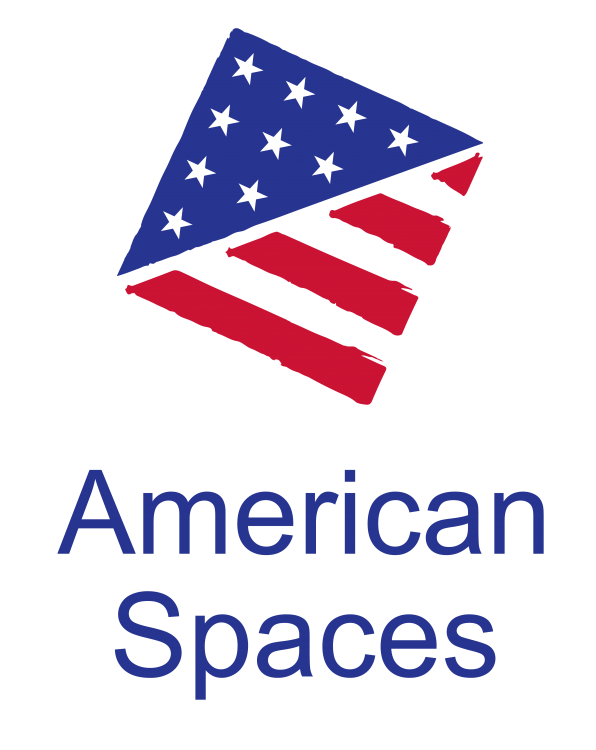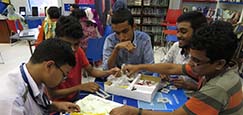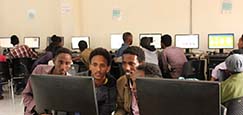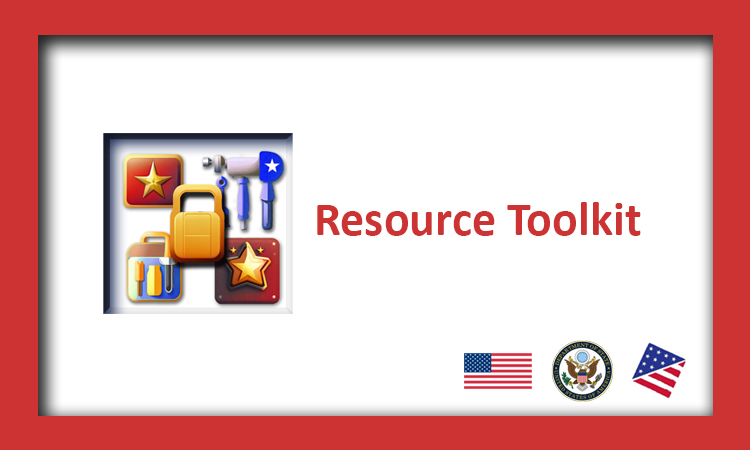OUR OCEAN
PROGRAM TOOLKIT FOR AMERICAN SPACES
This program toolkit is designed for programming at American Spaces to create a greater awareness of the issues and solutions in environmental sustainability.
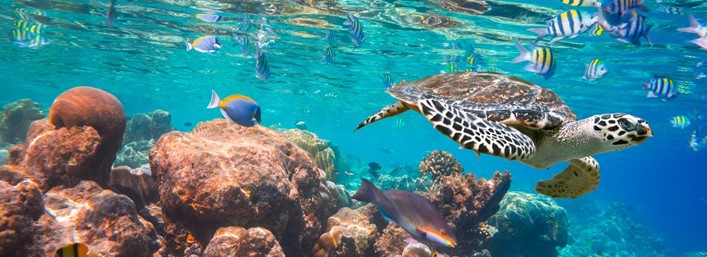
OUR OCEAN CONFERENCES
In the United States, the Department of State supports the Our Ocean Conferences, which have catalyzed unprecedented action by the global community to fight marine pollution, climate change, and unsustainable and illegal fishing, and to promote marine protected areas, the blue economy, and maritime security, among other efforts.
In March 2023, the Republic of Panama hosted the Our Ocean Conference. The Government of Panama highlighted the importance of knowledge as the basis of our actions and policies to ensure protection of our oceans, responsible management of marine resources, and sustainable future economic growth.
In April of 2024, the 9th Our Ocean Conference was held in Greece. The conference covered key areas such as marine protected areas, sustainable blue economies, climate change, maritime security, sustainable fisheries, and marine pollution. To learn more about the 9th Our Ocean Conference, visit the official website.
“From the time I was a little boy, I was always in awe of the ocean, and I have made it central to my life’s work to protect the bodies of water that cover three-quarters of our planet.”
John Kerry, Special Presidential Envoy for Climate
RESOURCES
- The U.S. Department of State’s National Museum of American Diplomacy offers this diplomacy simulation about overfishing in international waters. Participants will take on the roles of the U.S. Department of State and other key stakeholders to resolve the crisis and develop their skills in critical thinking, collaboration, problem-solving, communication, and global competence.
- The Office of National Marine Sanctuaries, as part of the National Oceanic and Atmospheric Administration (NOAA) provides a wide range of teaching materials and lesson plans, plus games and VR resources.
- NOAA also features recorded, subtitled webinars with ocean scientists for students aged 8-12 (also in Spanish).
- The Smithsonian’s Ocean Portal Educators’ Corner has activities, lessons, and educational resources to bring the ocean to life.
- The UN World Oceans Day website includes educational ocean-related stories, resources, and videos. (World Oceans Day is June 8)
- UNESCO’s “Ocean Literacy for All” toolkit is a comprehensive resource site created in 2018.
- National Geographic offers classroom materials for all ages and grades.
World Oceans Day
Every year on June 8, the world celebrates World Oceans Day, an occasion to draw attention to the importance of our ocean and the need to protect our precious marine resources. Stay tuned into this year’s edition with the @unworldoceansday on Instagram!
Additional Resources
Ecosystem – An ecosystem is a geographic area where plants, animals, and other organisms, as well as weather and landscape, work together to form a bubble of life.
Marine Protected Areas (MPAs) – MPASs are sections of the ocean where a government has placed limits on human activity. Many MPAs allow people to use the area in ways that do not damage the environment.
Blue Economy – According to the World Bank, a blue economy is the “sustainable use of ocean resources for economic growth, improved livelihoods, and jobs while preserving the health of ocean ecosystems.”
Glossary
- ESTH Days for 2024
- Environment & Sustainability Resources (toolkit)
- Climate Change Resources (toolkit)
- Air Quality Week Resources (toolkit)
- Earth Day resources (toolkit)
- NASA’s video, audio and photo collection
- NASA: The Science of Earth’s Rising Seas
ShareAmerica Articles
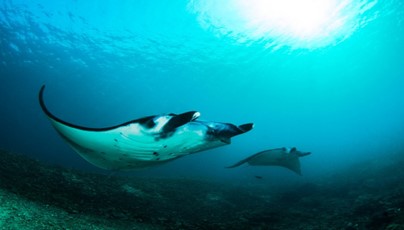
VIDEOS
- Oceans
PBS and the National Geographic Society Kanopy Film, 58 minutes - TED Talk: Dive into an Ocean Photographer’s World
Subtitled: 31 languages / Duration: 10 minutes
DISCUSSION QUESTIONS
- Do you live near an ocean or sea? Why are they important to you?
- In the TED Talk, the marine photographer says we are all impacted by the ocean. Do you think photographers like Thomas Peschak are doing an important job by letting us see both the beauty and problems in our oceans?
- More than 100 countries have pledged to take action to protect the ocean at the previous Our Ocean Conferences. Why must the countries of the world continue to work together to address issues such as climate change and ocean sustainability?
THE VIRTUAL REALITY CORNER
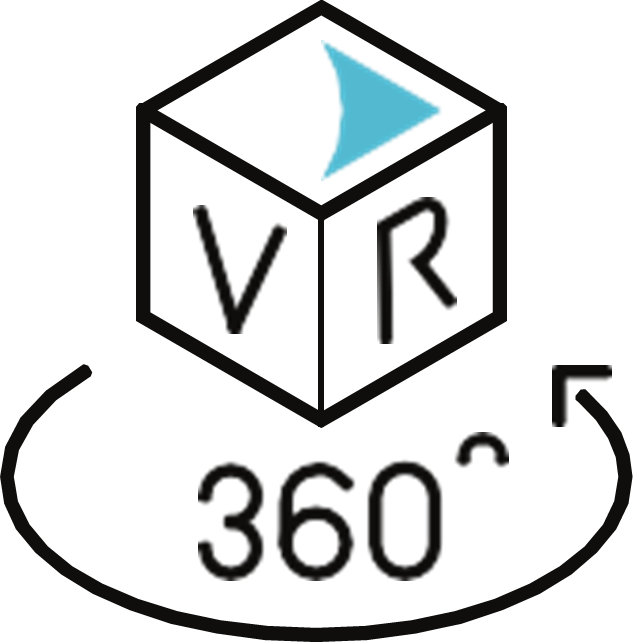
Dive in with the National Marine Sanctuaries and discover immersive 360 degree views of marine sanctuaries. Don’t have VR equipment?
Find instructions here to build your own Cardboard VR Headset to pair with a smartphone with your classes!
The views expressed in these links and resources do not necessarily reflect those of the U.S. government.
Updated May 2024

